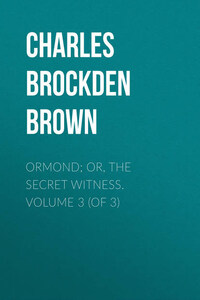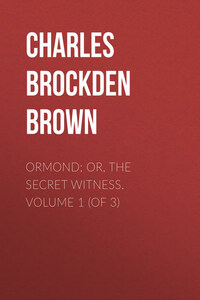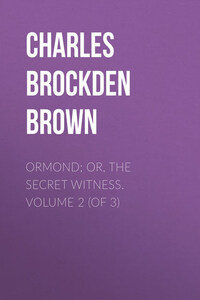"My father, in proportion as he grew old and rich, became weary of Aleppo. His natal soil, had it been the haunt of Calmucks or Bedouins, his fancy would have transformed into Paradise. No wonder that the equitable aristocracy and the peaceful husbandmen of Ragusa should be endeared to his heart by comparison with Egyptian plagues and Turkish tyranny. Besides, he lived for his children as well as himself. Their education and future lot required him to seek a permanent home.
"He embarked, with his wife and offspring, at Scanderoon. No immediate conveyance to Ragusa offering, the appearance of the plague in Syria induced him to hasten his departure. He entered a French vessel for Marseilles. After being three days at sea, one of the crew was seized by the fatal disease which had depopulated all the towns upon the coast. The voyage was made with more than usual despatch; but, before we reached our port, my mother and half the crew perished. My father died in the Lazaretto, more through grief than disease.
"My brother and I were children and helpless. My father's fortune was on board this vessel, and was left by his death to the mercy of the captain. This man was honest, and consigned us and our property to the merchant with whom he dealt. Happily for us, our protector was childless and of scrupulous integrity. We henceforth became his adopted children. My brother's education and my own were conducted on the justest principles.
"At the end of four years, our protector found it expedient to make a voyage to Cayenne. His brother was an extensive proprietor in that colony, but his sudden death made way for the succession of our friend. To establish his claims, his presence was necessary on the spot. He was little qualified for arduous enterprises, and his age demanded repose; but, his own acquisitions having been small, and being desirous of leaving us in possession of competence, he cheerfully embarked.
"Meanwhile, my brother was placed at a celebrated seminary in the Pays de Vaud, and I was sent to a sister who resided at Verona. I was at this time fourteen years old, – one year younger than my brother, whom, since that period, I have neither heard of nor seen.
"I was now a woman, and qualified to judge and act for myself. The character of my new friend was austere and devout, and there were so many incongenial points between us that but little tranquillity was enjoyed under her control. The priest who discharged the office of her confessor thought proper to entertain views with regard to me, grossly inconsistent with the sanctity of his profession. He was a man of profound dissimulation and masterly address. His efforts, however, were repelled with disdain. My security against his attempts lay in the uncouthness and deformity which nature had bestowed upon his person and visage, rather than in the firmness of my own principles.
"The courtship of Father Bartoli, the austerities of Madame Roselli, the disgustful or insipid occupations to which I was condemned, made me impatiently wish for a change; but my father (so I will call him) had decreed that I should remain under his sister's guardianship till his return from Guiana. When this would happen was uncertain. Events unforeseen might protract it for years, but it could not arrive in less than a twelvemonth.
"I was incessantly preyed upon by discontent. My solitude was loathsome. I panted after liberty and friendship, and the want of these were not recompensed by luxury and quiet, and by the instructions in useful science which I received from Bartoli, who, though detested as a hypocrite and lover, was venerable as a scholar. He would fain have been an Abelard, but it was not his fate to meet with an Eloisa.
"Two years passed away in this durance. My miseries were exquisite. I am almost at a loss to account for the unhappiness of that time, for, looking back upon it, I perceive that an equal period could not have been spent with more benefit. For the sake of being near me, Bartoli importunately offered his instructions. He had nothing to communicate but metaphysics and geometry. These were little to my taste, but I could not keep him at a distance. I had no other alternative than to endure him as a lover or a teacher. His passion for science was at least equal to that which ho entertained for me, and both these passions combined to make him a sedulous instructor. He was a disciple of the newest doctrines respecting matter and mind. He denied the impenetrability of the first, and the immateriality of the second. These he endeavoured to inculcate upon me, as well as to subvert my religious tenets, because he delighted, like all men, in transfusing his opinions, and because he regarded my piety as the only obstacle to his designs. He succeeded in dissolving the spell of ignorance, but not in producing that kind of acquiescence he wished. He had, in this respect, to struggle not only with my principles, but my weakness. He might have overcome every obstacle but my abhorrence of deformity and age. To cure me of this aversion was beyond his power. My servitude grew daily more painful. I grew tired of chasing a comet to its aphelion, and of untying the knot of an infinite series. A change in my condition became indispensable to my very existence. Languor and sadness, and unwillingness to eat or to move, were at last my perpetual attendants!










